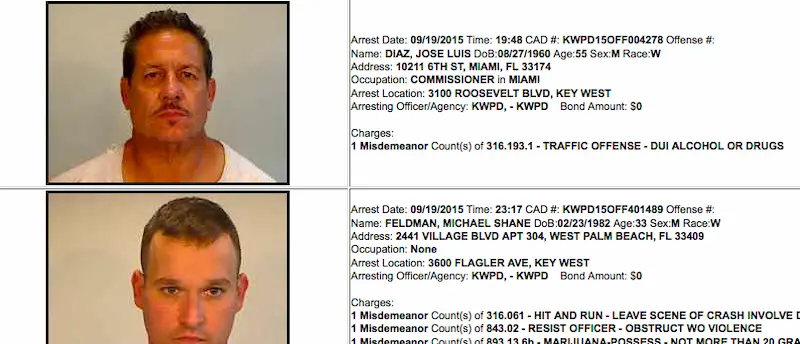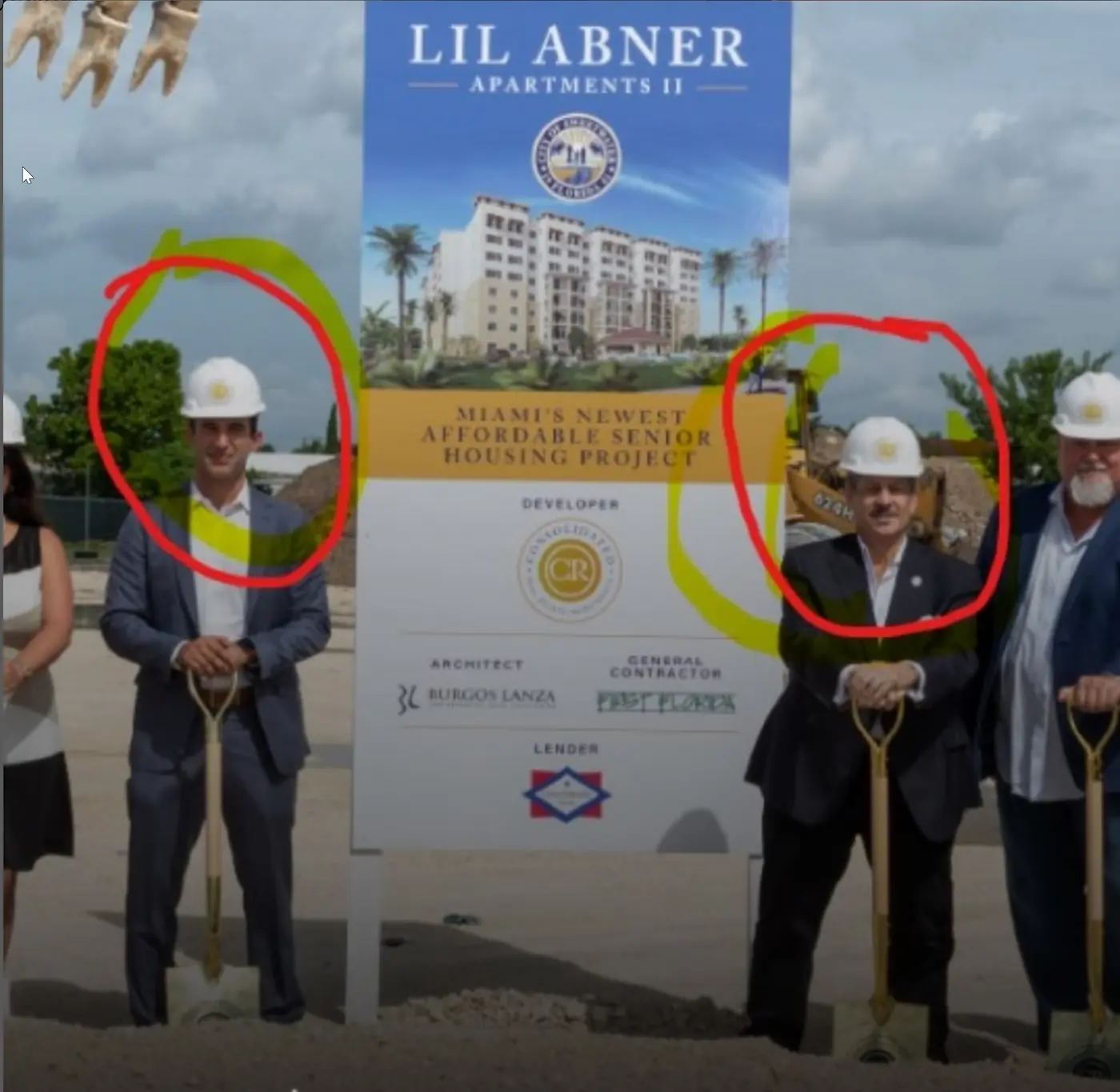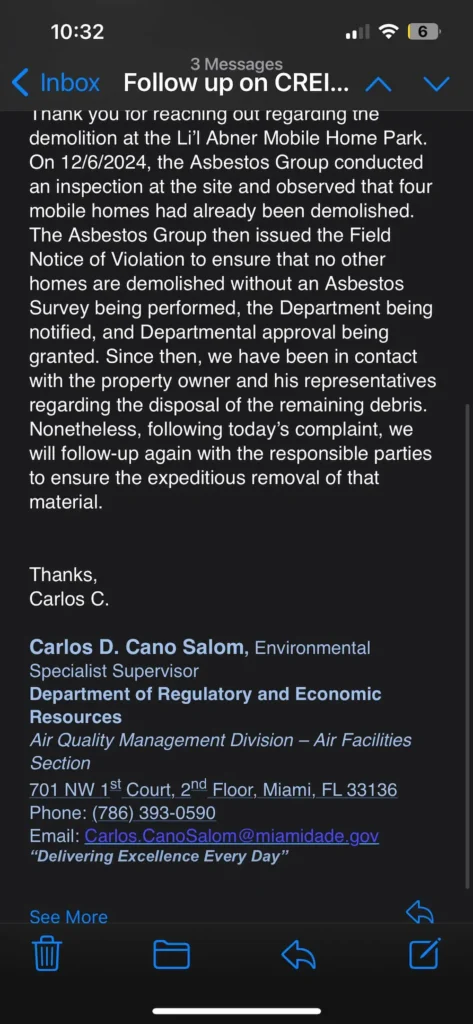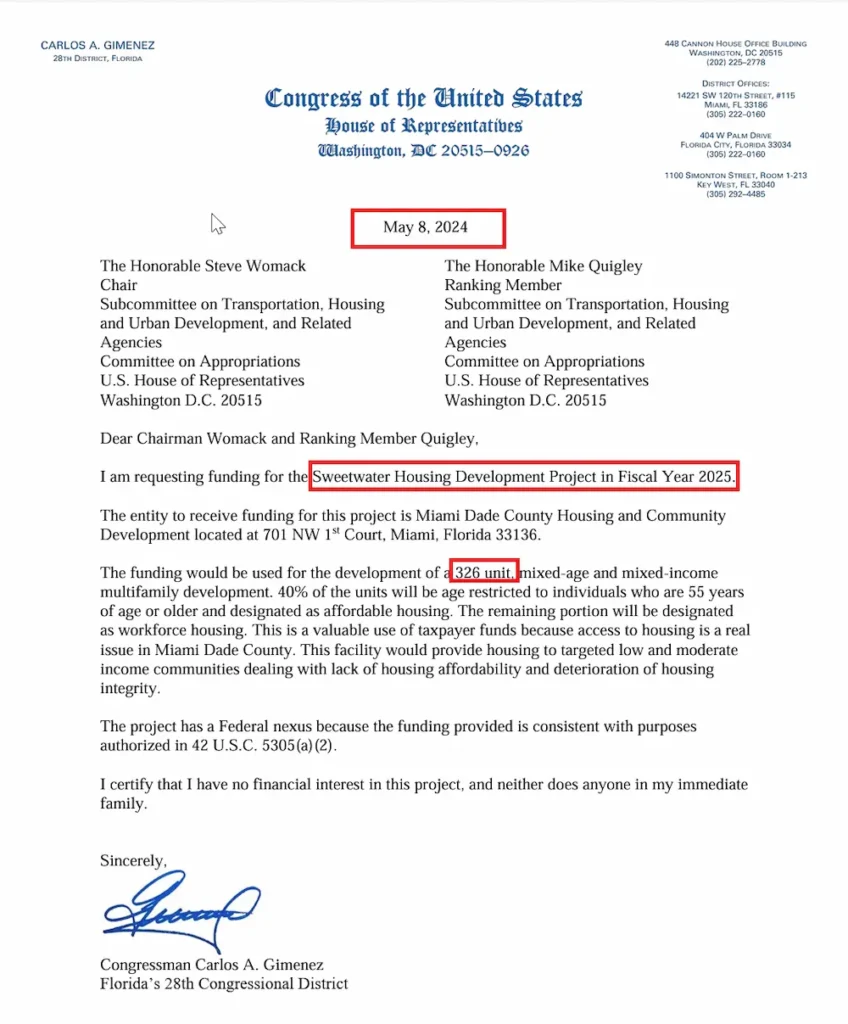|
Getting your Trinity Audio player ready... |
Tabla de Contenido/ Table of Contents
- 1 Public Service Timeline
- 2 Controversial Incidents
- 3 A Controversial Past
- 4 Social Media Erupts Against the Eviction
- 5 Insufficient Compensation: $14,000 to Leave Their Homes
- 6 Growing Legal Actions and Protests
- 7 Congressman Carlos Giménez’s Involvement
- 8 What’s Next for Sweetwater?
- 9 The Story is Still Developing
Crisis in Sweetwater Against Mayor José (Pepe) Díaz: Eviction of Over 900 Families Sparks Protests
Sweetwater, FL – The city of Sweetwater has become the epicenter of a social crisis following the eviction order of more than 900 families from the Li’l Abner mobile home park. The news, which came without prior notice in November 2024, has triggered a wave of protests and generated a strong reaction on social media, where thousands of users have expressed their discontent with Mayor José (Pepe) Díaz’s administration and other high-ranking local and federal officials.

José (Pepe) Díaz has had a long and prominent career in public service, particularly in the city of Sweetwater and Miami-Dade County. Below is a detailed timeline of his career and the controversial incidents in which he has been involved.
Public Service Timeline
- 1984: After being honorably discharged from the United States Marine Corps, Díaz began his public service as an auxiliary police officer in Sweetwater.
- 1986: He was appointed president of the Sweetwater Police Retirement Fund Board, marking the formal start of his public service career.
- 1991-1999: Served as Sweetwater City Commissioner for eight years.
- May 1999: Elected Mayor of Sweetwater. During his tenure, he faced significant challenges, including catastrophic floods that severely affected the city.
- 2002-2023: Served as Miami-Dade County Commissioner for District 12, which includes cities such as Doral, Hialeah, Hialeah Gardens, Medley, Sweetwater, and Virginia Gardens. During this period, he also held the position of Vice Chairman of the Miami-Dade County Board of Commissioners from 2009 to 2010.
- 2023: After reaching term limits as County Commissioner, Díaz returned to Sweetwater and was elected Mayor once again.
Controversial Incidents
Mayor José “Pepe” Díaz’s Role: Cover-Up or Negligence?
A Controversial Past
Díaz, who has been in public service for over 30 years, is no stranger to controversy. In 2014, he was arrested for DUI in Key West while riding his Harley-Davidson motorcycle under the influence. Although a jury acquitted him in 2015, his reputation was tarnished by the incident.
Now, with the eviction of Li’l Abner, his critics argue that his administration prioritizes real estate developers’ interests over the rights of vulnerable residents.
Key Incidents:
- 2014 – DUI Arrest: In September 2014, Díaz was arrested in Key West on suspicion of driving under the influence of alcohol while riding his Harley-Davidson motorcycle. Police body camera footage captured the incident. Later, in 2015, a jury acquitted him of the charges.

- 2022 – No-Bid Contract: In 2022, Díaz was once again at the center of controversy for approving a $134 million no-bid contract for emergency radios in Miami-Dade County, sparking accusations of corruption and lack of transparency. It was alleged that the process lacked transparency and that competitive bids that could have saved millions of taxpayer dollars were not considered.
- 2023-2024 – Ongoing Controversy: Mayor José “Pepe” Díaz remains at the center of controversy. He issued a statement claiming he understands the distress of residents and that his administration will seek solutions to help them transition. However, protesters and community leaders accuse Díaz of having been aware of the land sale since his tenure as Miami-Dade County Commissioner (2002-2023) and of failing to act to protect the community.
- 2024 – Eviction of Li’l Abner Mobile Home Park: In November 2024, more than 900 families from the Li’l Abner mobile home park in Sweetwater were notified of an imminent eviction due to the park’s permanent closure, scheduled for May 2025. Díaz has been criticized for his support of a development project in the area, raising questions about his prior knowledge of the land sale. Affected families have expressed distress and concern about finding new housing.
Source: Telemundo 51
Mass Eviction in a Vulnerable Community
On May 19, 2025, the Li’l Abner mobile home park will permanently shut down, leaving hundreds of families in complete uncertainty. According to the landowners, the eviction is part of an urban development plan aimed at modernizing the area with new affordable housing, a K-12 school, a community center, and additional infrastructure. However, residents claim that this development is being carried out at the expense of their stability and without a real relocation plan.
“They are forcing us to leave without offering real alternatives. With rent prices so high in Miami, where are we supposed to go?” – Francisco Ramírez, a resident who recently invested his savings in improving his mobile home.
In November 2024, more than 900 families from the Li’l Abner mobile home park in Sweetwater were notified of the park’s permanent closure, scheduled for May 19, 2025. This news triggered a wave of protests and concern among residents, who now face the difficult challenge of finding new housing in a competitive real estate market.
Source: Telemundo 51
The park management offered an incentive of up to $14,000 to homeowners who vacate the property before January 31, 2025. However, many residents believe that this compensation is insufficient to cover relocation expenses and potential losses associated with the eviction.
Source: NBC Miami
Mayor José “Pepe” Díaz’s Response
Sweetwater Mayor José “Pepe” Díaz expressed his understanding of the situation and stated that his administration is exploring all possible resources to provide support during this transition. However, some residents have criticized Díaz, arguing that, as a former Miami-Dade County Commissioner, he may have been aware of the land sale and failed to act early enough to protect the community.
Source: El Nuevo Herald
Legal Actions and Tenant Complaints
Additionally, legal actions have been filed by residents, alleging irregularities in the eviction process, including lack of proper notification and rent increases that violate state regulations. Attorneys representing affected families are seeking to delay the eviction order and challenge the legality of the rezoning process.
Source: Diario Las Américas
This Incident Highlights Tensions Between Urban Development and Community Preservation
This incident has highlighted tensions between urban development and the preservation of established communities, particularly low-income neighborhoods. The situation at Li’l Abner continues to evolve, with residents, local officials, and legal representatives working to find solutions to mitigate the impact of eviction on affected families.
Social Media Erupts Against the Eviction
The scandal has been amplified by outrage on social media, where numerous videos of protests, heartbreaking testimonies, and harsh criticism of Díaz’s administration have circulated. Some of the most viral content includes:
- Videos of mothers crying as they explain they have nowhere to go with their children.
- Images of Sweetwater police blocking traffic during protests.
- Reports of irregular rent increases before the eviction, interpreted as an attempt to force residents out early.
On platforms like TikTok, Twitter, and Facebook, the hashtags #NoAlDesalojoSweetwater and #PepeDiazCorrupto have accumulated thousands of posts.
Insufficient Compensation: $14,000 to Leave Their Homes
The company The Urban Group, owner of the land, announced an assistance package of up to $14,000 for those who vacate before January 31, 2025. However, residents argue that this amount is insufficient to cover relocation costs in a city with one of the most expensive housing markets in the country.
“This money doesn’t even cover half of what it costs to move to a decent place. They are kicking us out without giving us real options,” said Ana González, a single mother and resident of the park.

Li’l Abner Mobile Home Park Owners’ Actions Leading to the Eviction
The owners of Li’l Abner mobile home park, CREI Holdings, have implemented a series of actions that have led to the eviction of more than 900 families in Sweetwater. Below are the key moves taken by the landowners to facilitate this process:
Development Planning and Eviction Notice
In November 2024, CREI Holdings notified residents of the permanent closure of the park, scheduled for May 19, 2025. The company plans to redevelop the area to include affordable housing, a K-12 school, medical facilities, and a community center.
This decision shocked many residents, especially those who had recently purchased or upgraded their mobile homes without knowledge of the development plans.
Source: El Nuevo Herald
Offering Financial Incentives
To speed up the eviction, CREI Holdings offered tiered financial incentives to residents:
- $14,000 for those who move before January 31, 2025.
- $7,000 for those who move before March 31, 2025.
- $3,000 for those who move before April 30, 2025.
However, many residents argue that these amounts are insufficient to cover relocation costs in Miami-Dade’s competitive housing market.
Source: Diario Las Américas
Property Sales Without Disclosing Future Plans
Reports indicate that even after development plans were in place, real estate agents continued selling mobile homes in Li’l Abner without informing buyers of the impending eviction.
For example, Carlos Couce bought his home in June 2024 without knowledge of the redevelopment plans. Leases falsely stated that there were no planned changes, leading to accusations of fraudulent practices.
Source: Local10
Rent Hikes and Allegations of Irregularities
Residents have alleged that CREI Holdings implemented rent increases within 90 days of issuing the eviction notice, which violates state regulations.
Additionally, the company is accused of failing to properly notify the homeowners’ association and not offering them the right of first refusal to purchase the land, as required by Florida law.
Source: Diario Las Américas
Residents’ Legal Response
In response to these actions, more than 200 residents have filed a class-action lawsuit against CREI Holdings, the City of Sweetwater, and Miami-Dade County.
The lawsuit claims that the eviction notices are “illegal and inconceivable” and that residents were misled about the intention to clear the area for redevelopment.
Source: Diario Las Américas
Growing Legal Actions and Protests
As the eviction date approaches, residents have taken legal action against the city and landowners, arguing irregularities in the process:
- Lack of proper notification.
- Illegal rent increases before eviction.
- Possible manipulation in the rezoning process.
Attorneys for the families are seeking to block or at least delay the eviction order while the case is investigated.

Meanwhile, protests continue, and residents have called on civil rights organizations and local politicians for support to prevent what they consider an injustice and a forced displacement of the working-class community.
Congressman Carlos Giménez’s Involvement
A letter sent by Congressman Carlos Giménez requesting federal funds for the Sweetwater Housing Development Project in May 2024 raises questions about his connection to the evictions of low-income residents and benefits to real estate companies.
Key Points from the Letter
Project Objective
Development of 326 housing units, including:
- 40% for seniors aged 55+, classified as “affordable housing.”
- 60% as “workforce housing” (for moderate-income workers).
- Recipient entity: Miami-Dade County Housing and Community Development.
- Justification: Affordable housing crisis in the county.
Giménez’s Certification:
- Declares no financial interest in the project for himself or his family.
Connection to Previous Controversies
Sweetwater Context
Sweetwater has seen evictions in trailer parks (e.g., Roman Trailer Park), where low-income residents were displaced to make way for real estate developments.
Companies like The Urban Group have been involved in similar projects.
Some affordable housing developments in Miami-Dade have been criticized for prioritizing corporate interests over community needs, especially with rapid rezoning changes.
Giménez’s Ties to Developers
- Giménez received campaign donations from key real estate figures, such as Santiago Roman (owner of Roman Trailer Park) and companies like Lennar and The Related Group.
- While he certifies no direct interest, his history suggests a political alignment with developers who could indirectly benefit.

What’s Next for Sweetwater?
The Li’l Abner case has opened a broader debate about the housing crisis in South Florida and the role of local officials in decision-making that affects thousands of residents.
Although Mayor José “Pepe” Díaz insists that his administration is working on a solution, the community continues to demand clear answers and concrete actions.
Will this case turn into a major political scandal, or will there be a real solution for the 900 families at risk of losing their homes?
The Story is Still Developing
🔴 Neighbors of Sweetwater and all of Miami-Dade!
We invite you to participate in district meetings and Miami-Dade County Commission hearings.
📢 Your voice is essential to building a stronger and more prosperous community.
💬 Do you have videos or testimonies about the Li’l Abner eviction? Share your experience on social media using the hashtags #NoAlDesalojoSweetwater and #PepeDiazCorrupto.
Want more post like this?
Head over to our homepage for the latest updates from South Florida and beyond:











